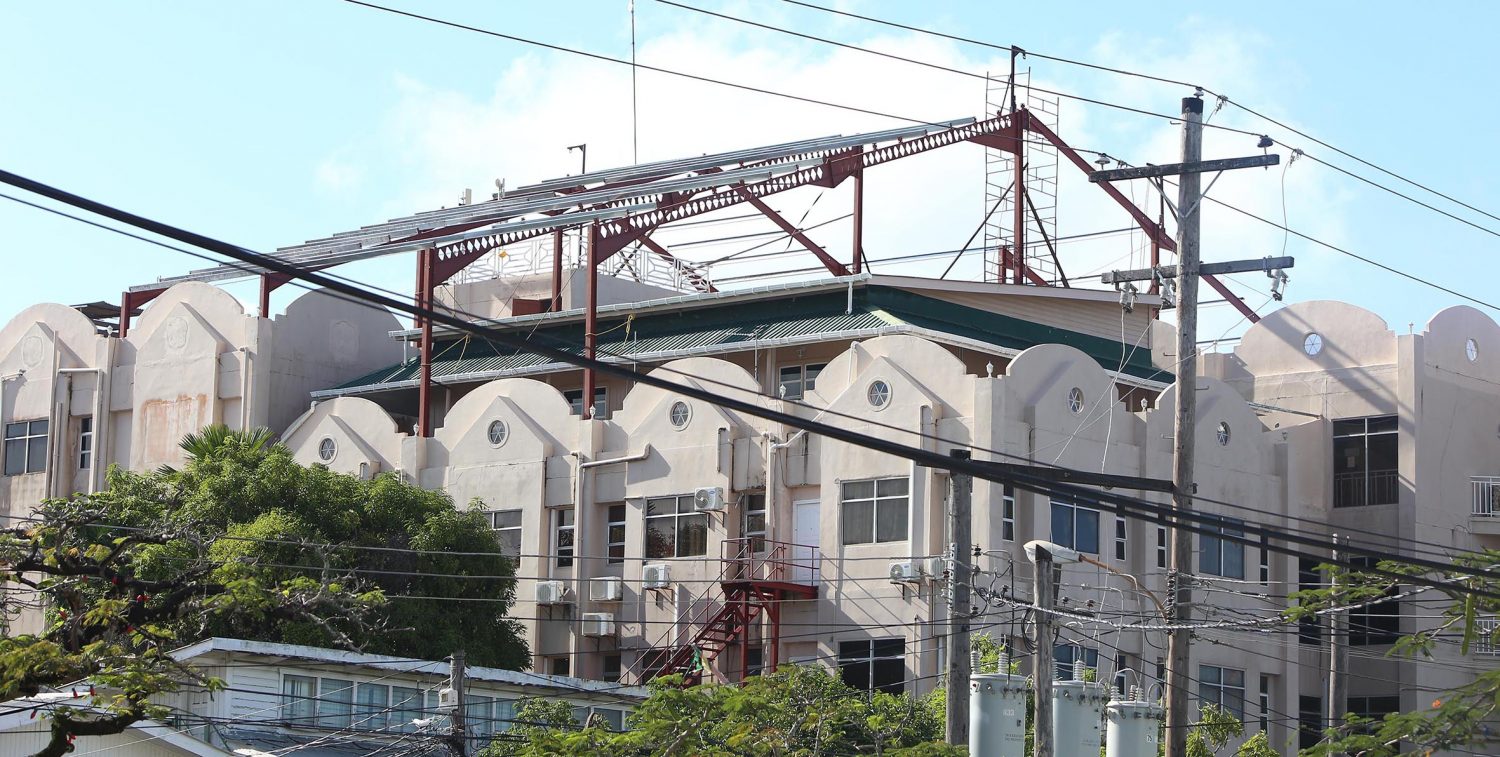Faced with a mounting maintenance bill for its crumbling Camp Street Headquarters, the Guyana Revenue Authority (GRA) has once again appealed to Cabinet for its approval of the construction of a Campus at Liliendaal.
Stabroek News understands that over the six years GRA has occupied the building it has expended a significant amount of its budget on improving its structural integrity. In fact as of January 2018 the agency has spent in excess of $1.2 billion with a further $200 million having been budgeted for other urgent works required to fix structural defects and health and safety concerns.
Further, the newspaper has been reliably informed that the National Insurance Scheme (NIS) from whom the GRA is renting has requested a $10 million increase in the monthly rent. If this increase is approved GRA will be paying $15 million a month to rent a too-small building which is collapsing and possibly putting staff at risk.
Alternatively if Cabinet were to approve its proposal the agency would at the end of its lease in 2022 have access to a 10-acre campus which would provide a more efficient working space.
The proposed project is estimated to cost $4 billion. GRA has already secured the land at a total cost of just over $49 million. This cost included a payment to the previous lease holders Sun and Sand Hotel Incorporated as well as a rental and processing fee to the Guyana Lands and Surveys Commission. The work completed by Sun and Sand was valued at nearly $48 million.
The $1.4 billion that the GRA has spent on maintenance does not include recurring maintenance works nor all works necessary to remedy structural defects, rather it represents the amount spent on making the space habitable. All works have been a matter of urgency.
In fact, according to the 2013 Annual Report of the agency which was recently laid in the National Assembly, GRA at that time had constructed several additional washroom facilities including for females and differently-abled, been forced to modify the ground floor atrium area, construct an emergency exit, and undertaken various rehabilitation works on the building. The report lists over 60 modifications or repairs undertaken in that year alone.
Despite this continued expenditure the building continues to fall apart with cracks visible on both external and internal walls. In 2015 the APNU+AFC administration admitted that the headquarters was “not fit for occupation.”
Speaking with Stabroek News in August 2015, Chairman of the GRA Board, Rawle Lucas had referred to the roof as a “sieve” and explained that some staff and customers are forced to use umbrellas while in the building because of leaks.
Five days later, Minister of Finance Winston Jordan told the National Assembly that the building was found to be “structurally not in keeping with the activity for the people in there.” He added that things were made worse by an earth tremor in July of that year.
GRA is renting the building from the National Insurance Scheme for $5 million a month. In October 2012, GRA began its move into the building but not before a consultancy firm was hired at a cost of $4.5 million to prepare the building for occupancy. Government would later award a contract for a whopping $227.1 million to complete and modify the building so that it could be occupied by the GRA.
In June of last year another $50 million contract was awarded for the repair of the roof while Commissioner General Godfrey Statia told reporters that a document requesting permission to construct a campus at Liliendaal had been submitted to Cabinet. Stabroek News understands that those works actually cost GRA more than $66 million while the Cabinet
document has since been returned to agency.
The document would’ve noted among other things that the building is eminently unsuitable for the functions performed by GRA. The space provided at nearly 37,000 square feet is less than half of the 75,000 square feet previously used by the agency. This inadequacy has forced GRA to rent storage space at the Guyana Post Office Corporation (GPOC).
Further the cracks in the structure continue to result in flooding in several areas of the building. Even with the roof repaired Stabroek News observed on a recent visit to the agency that poorly constructed windows were allowing for water to enter to building.
Since the steel frame of the building which was constructed by the Guyana Sugar Corporation was left exposed to the elements for more than two decades before construction was completed there is evidence of significant wearing.
Though these columns have been encased in concrete several exposed sections show signs of corrosion especially near connection points. The 2013 Annual Report reveals that these points were subject to repair attempts totalling in excess of $12 million in that year.
The observed deterioration suggests that corrosion may be present throughout column lengths and is likely to continue to the state of impairing the structural integrity of the building which Statia had previously noted is sinking.
The persistent moisture in the building creates an environment in which mould and fungus grow. This growth which is evident throughout the building adversely affects the health and wealth-being of staff.
Stabroek News had previously reported that a number of staff members had been incapacitated by respiratory ailments.






